Find Help
More Items From Ergsy search
-
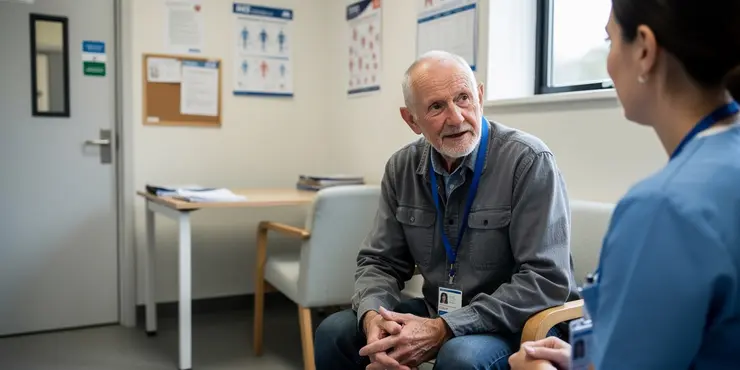
Parkinson’s Disease and NHS RightCare: Long Term Condition Scenario
Relevance: 100%
-
What is Parkinson's disease?
Relevance: 72%
-
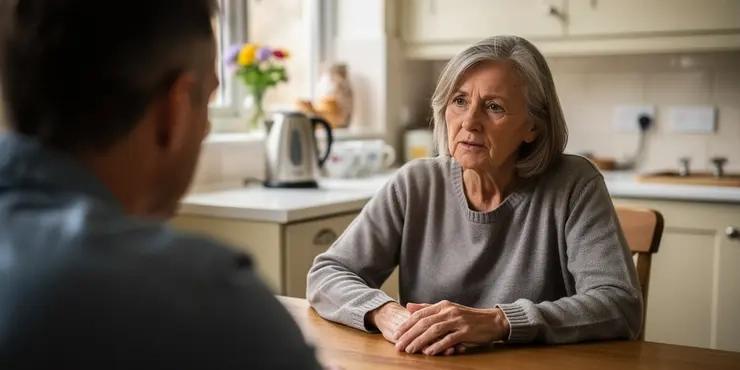
Parkinson's disease: Karen's story | NHS
Relevance: 66%
-
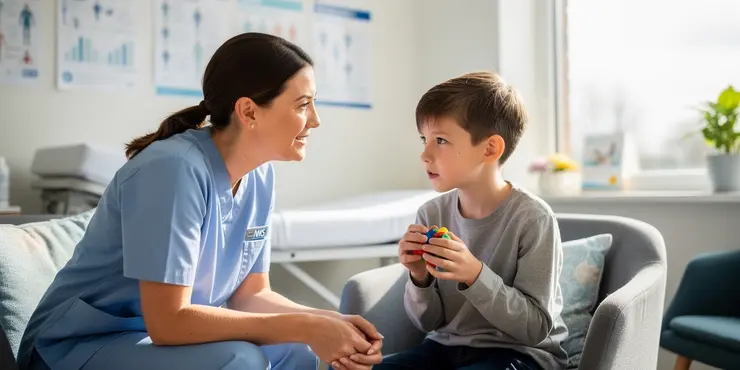
The NHS Long Term Plan for learning disability and autism
Relevance: 41%
-
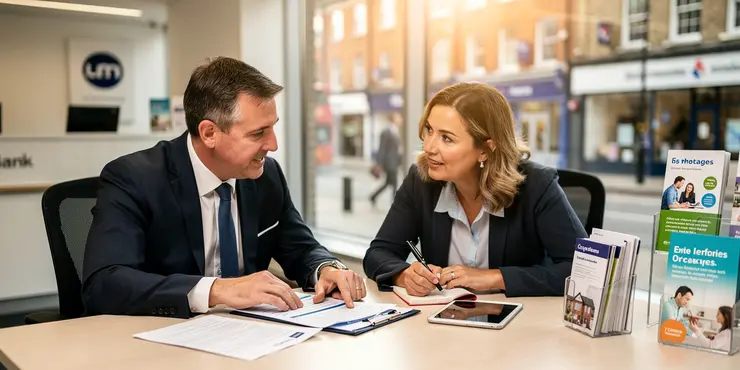
What should I look for in the policy's terms and conditions?
Relevance: 41%
-
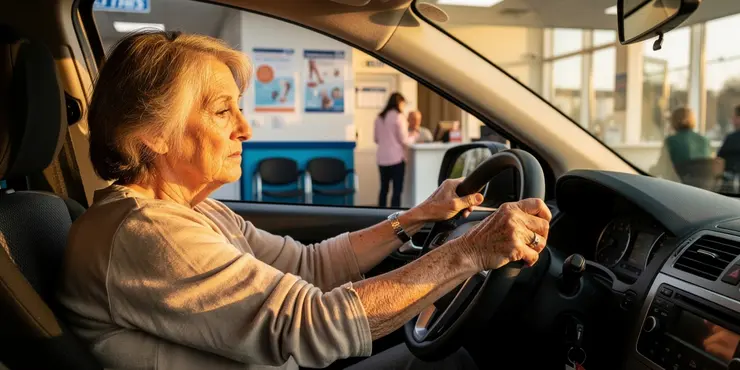
What role do chronic conditions play in driving risks for seniors?
Relevance: 28%
-

Can my loan repayment terms be renegotiated?
Relevance: 28%
-

Why is understanding the terms of car finance important?
Relevance: 27%
-
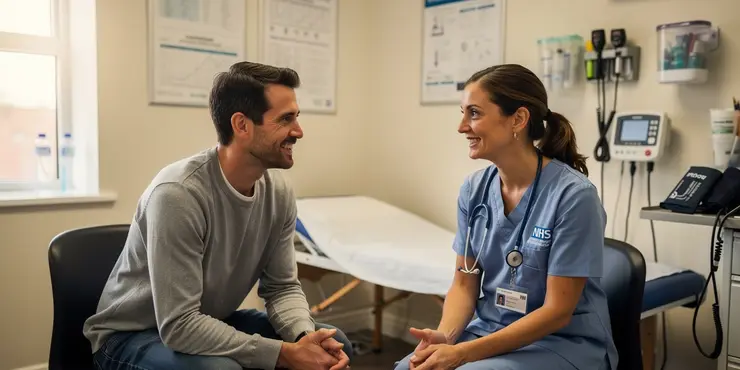
Long Covid
Relevance: 25%
-

Can an indefinite sentence end with a conditional release?
Relevance: 24%
-
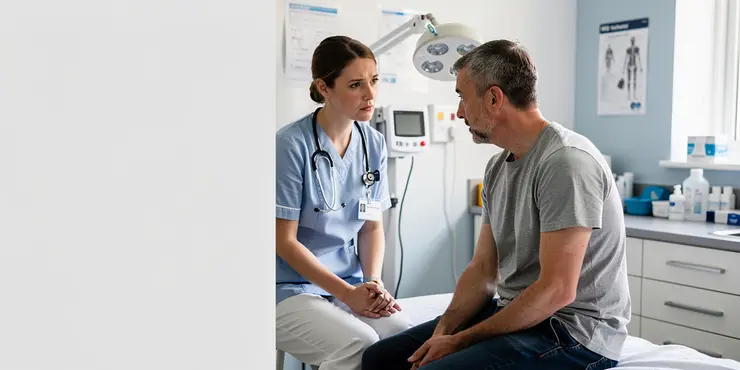
What are the symptoms of long covid?
Relevance: 24%
-
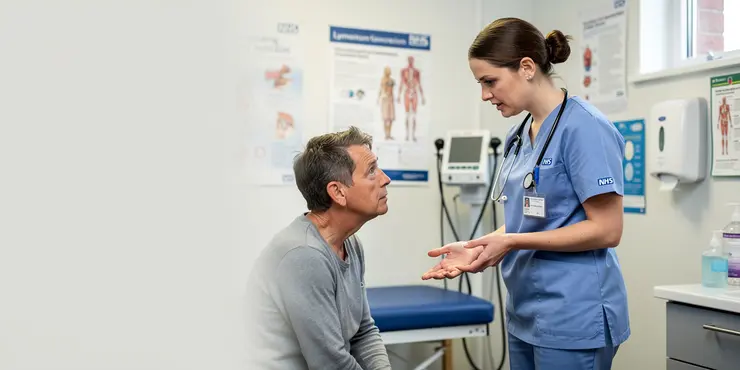
What is Lyme Disease?
Relevance: 24%
-
How long does the Attorney General serve in the UK?
Relevance: 24%
-
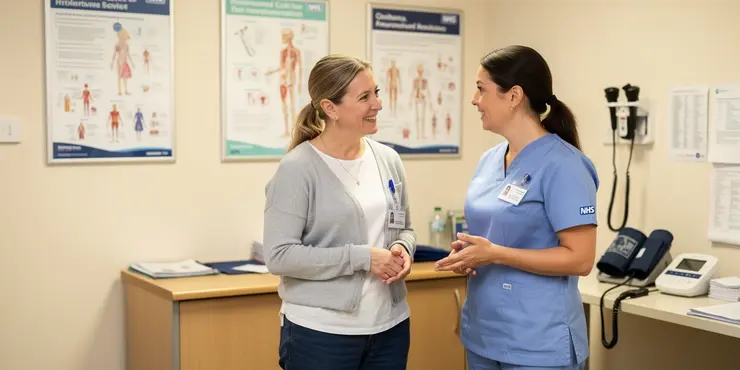
Do UK mosquitoes carry diseases?
Relevance: 24%
-
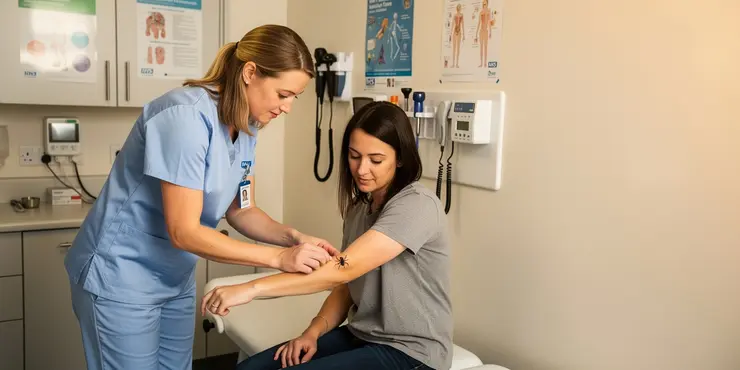
How long does a tick need to be attached to transmit Lyme disease?
Relevance: 24%
-
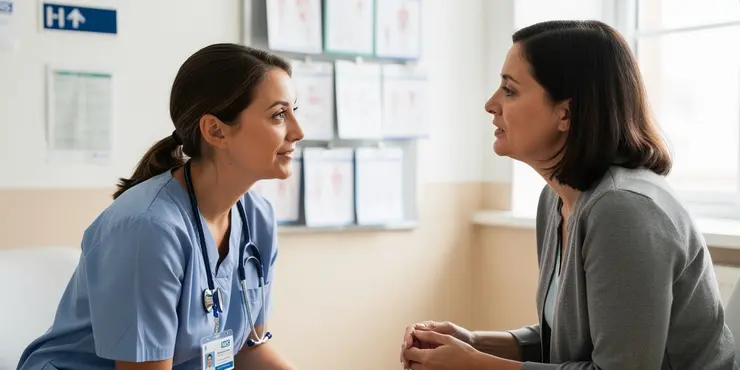
Is Huntington's disease fatal?
Relevance: 23%
-

Is asthma a serious condition?
Relevance: 23%
-
Why are seed oils controversial in terms of health?
Relevance: 23%
-
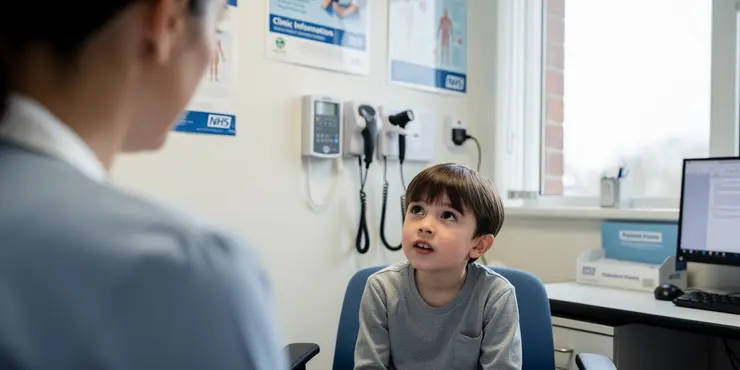
Can children develop Crohn's disease?
Relevance: 23%
-
Is tinnitus a common condition?
Relevance: 22%
-
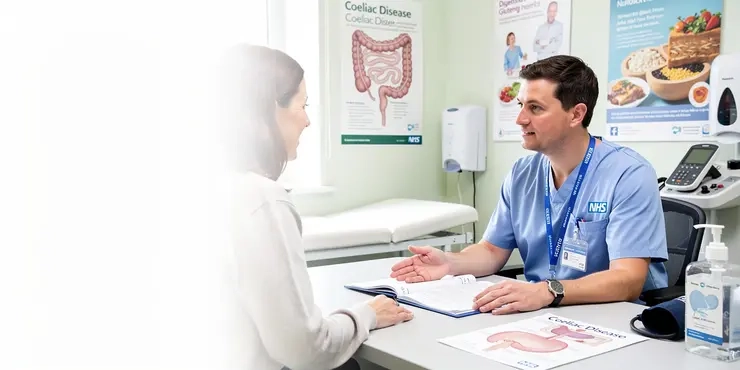
Coeliac Disease: Session 1: What is Coeliac Disease?
Relevance: 22%
-

What is a pre-existing condition waiver in travel insurance?
Relevance: 22%
-
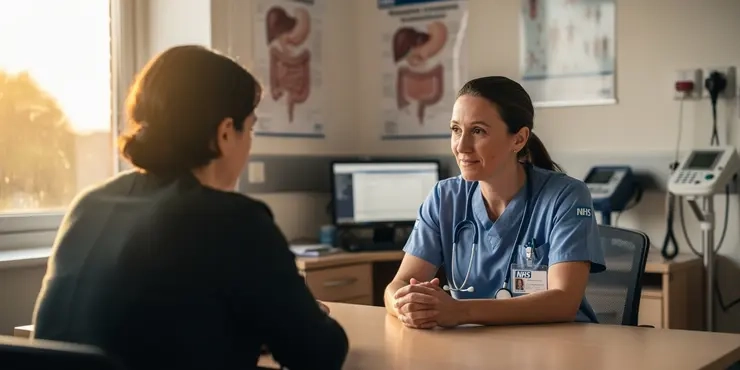
Coeliac disease
Relevance: 22%
-
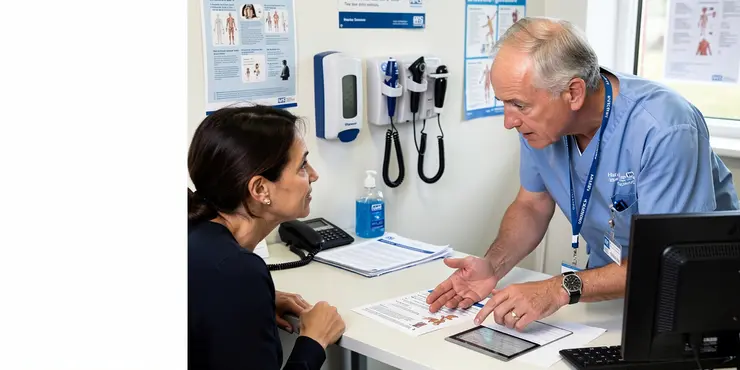
What is a flesh-eating disease?
Relevance: 22%
-
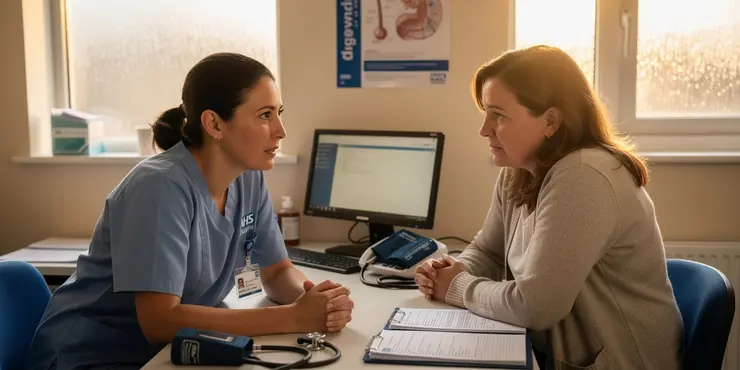
Is there a vaccine for Lyme disease?
Relevance: 22%
-
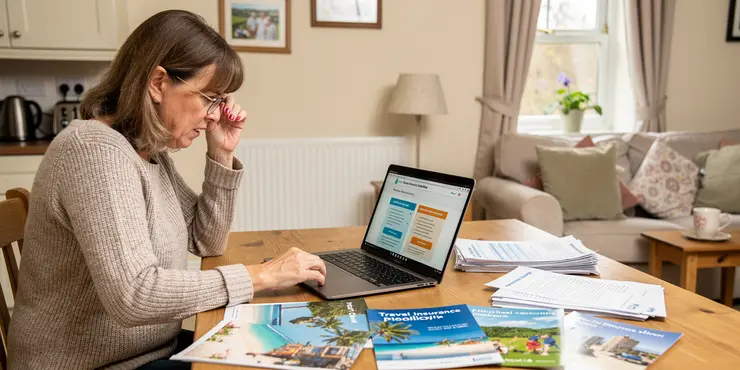
Are pre-existing medical conditions covered by holiday insurance policies?
Relevance: 22%
-
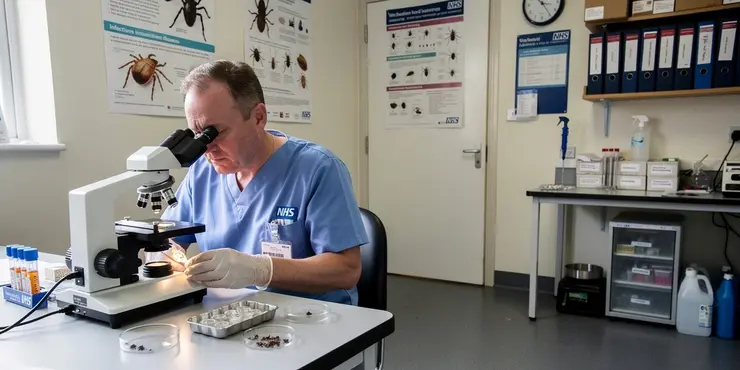
What kind of ticks carry Lyme disease?
Relevance: 22%
-
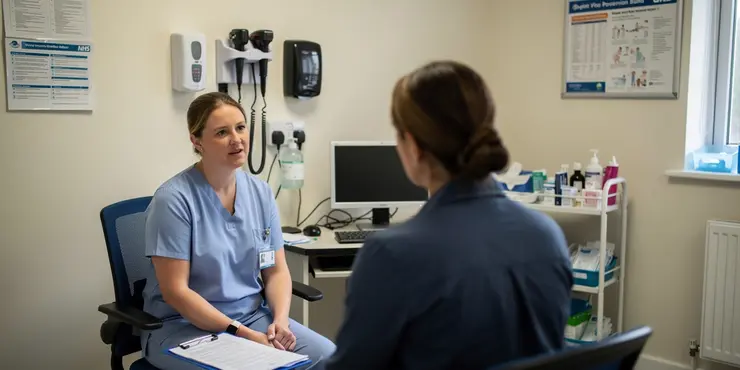
What is post-treatment Lyme disease syndrome (PTLDS)?
Relevance: 22%
-
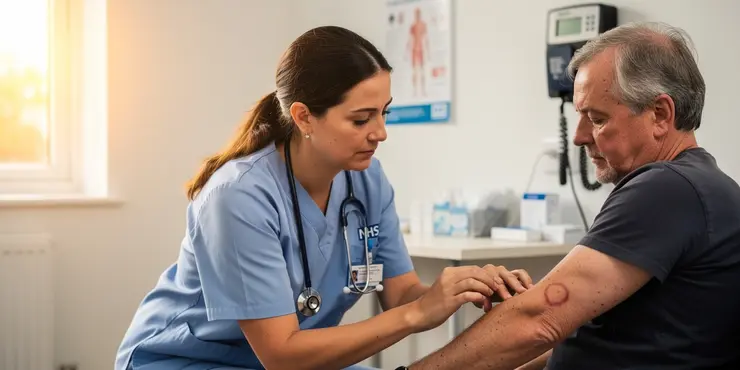
Lyme disease: What is it?
Relevance: 22%
-
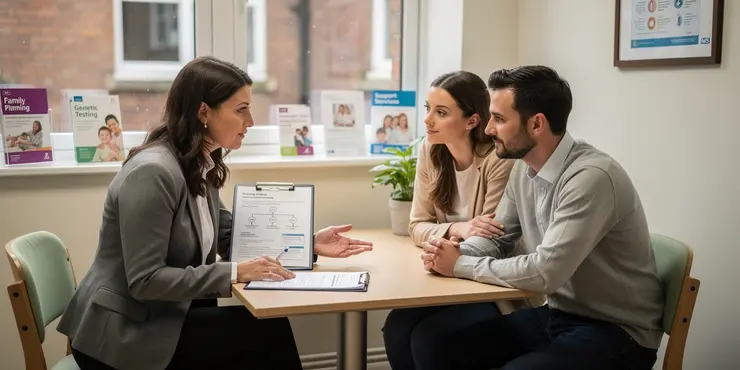
Can Huntington's disease be prevented?
Relevance: 22%
-
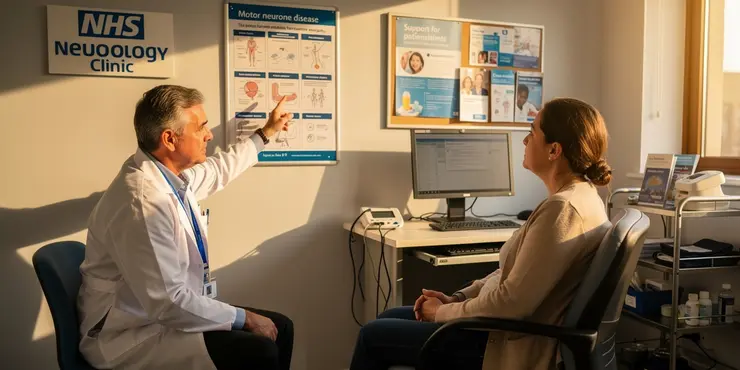
Is there a cure for motor neurone disease?
Relevance: 22%
-
What is encroachment in terms of boundary disputes?
Relevance: 22%
-
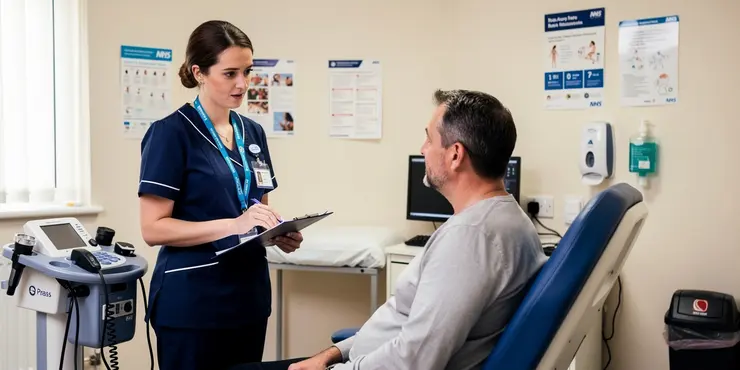
What causes flesh-eating disease?
Relevance: 22%
-
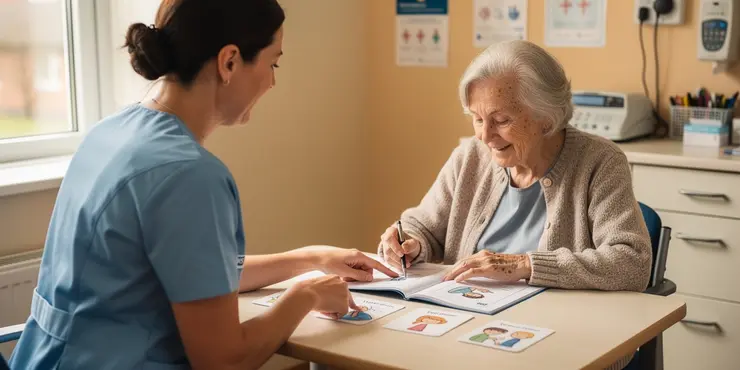
How common is Alzheimer's disease in the UK?
Relevance: 21%
-
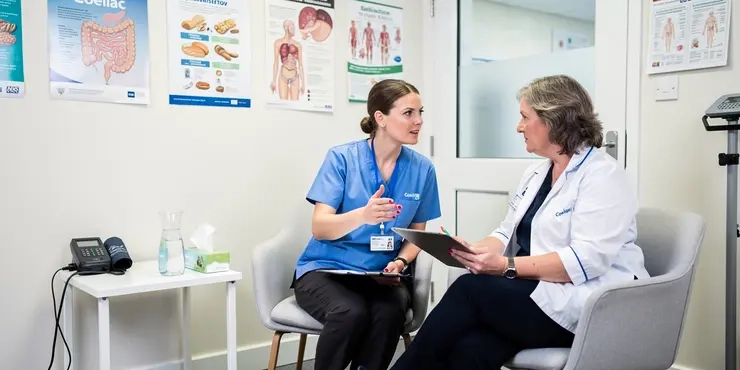
Causes of coeliac disease
Relevance: 21%
-
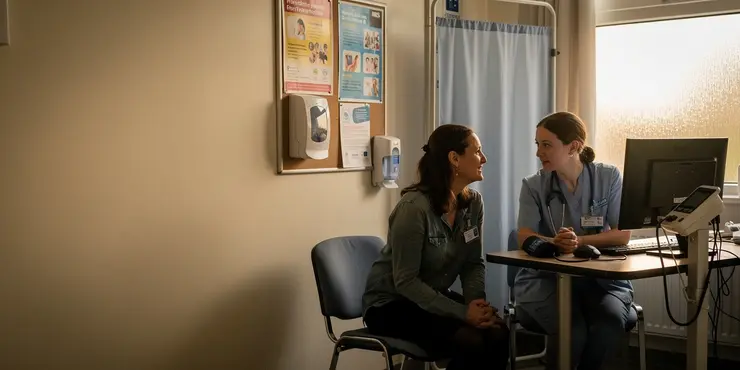
Is Crohn's disease contagious?
Relevance: 21%
-
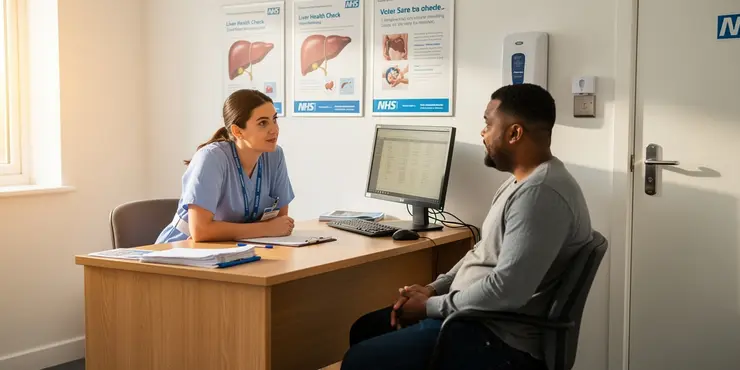
Liver disease | NHS
Relevance: 21%
-
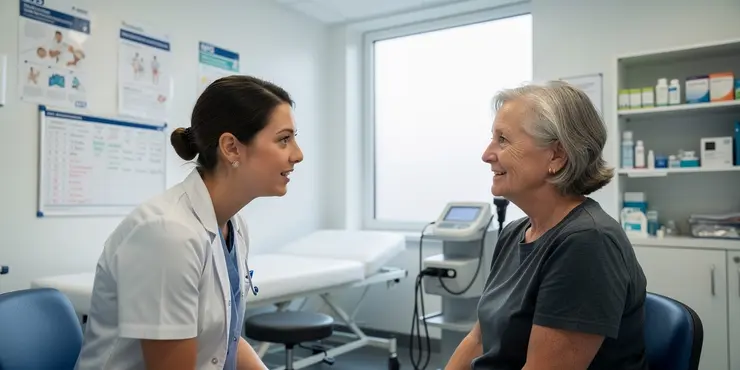
Is there a cure for Crohn's disease?
Relevance: 21%
-
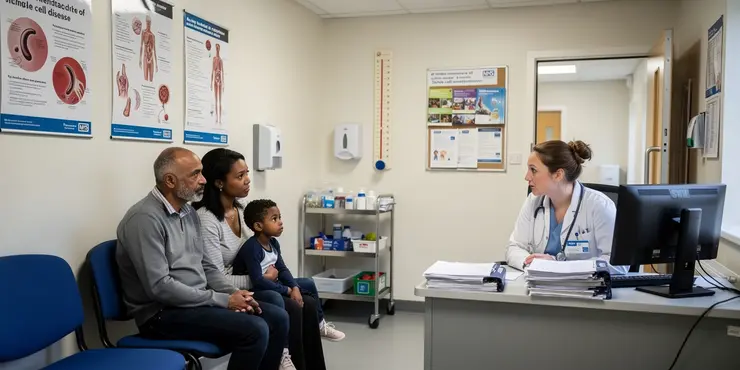
How is sickle cell disease inherited?
Relevance: 21%
-
Should individuals with certain medical conditions avoid aspirin?
Relevance: 21%
Understanding Parkinson’s Disease and NHS RightCare: Long Term Condition Scenario
What is Parkinson’s Disease?
Parkinson’s Disease (PD) is a progressive neurological disorder that affects movement. It develops gradually, sometimes starting with a barely noticeable tremor in just one hand, and progresses over time. Although tremors are common in PD, the disorder also commonly causes stiffness or slowing of movement. In the UK, Parkinson's affects around 1 in 500 people, which translates to an estimated 145,000 individuals. Symptoms tend to develop after the age of 50, although approximately 1 in 20 people with the condition first experience symptoms when they are under 40.
Symptoms and Progression
PD symptoms vary from person to person and might include tremor, bradykinesia (slowness of movement), muscle stiffness, and problems with balance and coordination. Non-motor symptoms, such as depression, anxiety, sleep disturbances, and cognitive changes, are also common. As the disease advances, these symptoms can become more pronounced and may lead to significant disability.
NHS RightCare: Supporting Long Term Conditions
The NHS RightCare initiative aims to deliver the best possible care for individuals with long-term conditions like Parkinson’s Disease while ensuring optimal use of healthcare resources. By focusing on pathway design, best practice models, and patient-centered care, NHS RightCare helps ensure that patients receive high-quality, efficient, and equitable healthcare.
NHS RightCare Approach to Parkinson’s Disease
RightCare provides a standardized approach to managing Parkinson’s Disease, including early diagnosis, personalized treatment plans, coordinated care, and regular monitoring. This approach focuses on:
- Early Diagnosis: Facilitating earlier and more accurate diagnoses to enable timely intervention and better outcomes.
- Comprehensive Assessment: Ensuring that patients receive a holistic assessment that includes both motor and non-motor symptoms, leading to tailored care plans.
- Interdisciplinary Care: Coordinating the efforts of neurologists, general practitioners, nurses, physiotherapists, occupational therapists, and other specialists to provide well-rounded care.
- Patient and Family Support: Offering resources and support for patients and their families, including education about disease progression, management strategies, and coping mechanisms.
- Data and Feedback: Utilizing data to monitor outcomes, identify areas for improvement, and implement evidence-based practices.
Conclusion
Parkinson’s Disease requires a dedicated and strategic approach to management, and NHS RightCare offers a robust framework to address the complexities of this condition. Through early intervention, coordinated care, and ongoing support, people with Parkinson’s in the UK can achieve better health outcomes and maintain a higher quality of life.
Understanding Parkinson’s Disease and NHS RightCare: Long Term Condition Scenario
What is Parkinson’s Disease?
Parkinson’s Disease, or PD, is a disease that affects how you move. It gets worse over time. It might start with a small shake in one hand. Many people with Parkinson’s have shaking, stiff muscles, or move more slowly. In the UK, about 1 in 500 people have Parkinson’s. That is around 145,000 people. Most people get it after they turn 50, but some people can get it before they are 40.
Symptoms and Progression
People with PD have different symptoms. These can include shaking, slow movements, stiff muscles, and trouble with balance. They might also feel sad, worried, have trouble sleeping, or find it hard to think clearly. As time goes on, these symptoms can get worse and cause big problems.
NHS RightCare: Supporting Long Term Conditions
The NHS RightCare program helps people with long-term health problems like Parkinson’s Disease. It helps make sure they get the best care. RightCare wants to use healthcare resources in the best way. It focuses on planning good care paths and helping patients get high-quality healthcare.
NHS RightCare Approach to Parkinson’s Disease
RightCare has a standard way to help people with Parkinson’s Disease. This includes finding out if someone has Parkinson’s early, making personal care plans, and working with different health professionals. Here is how they do it:
- Early Diagnosis: Finding out if someone has Parkinson’s early means they can start treatment sooner and feel better.
- Comprehensive Assessment: Checking how Parkinson’s affects a person, both physically and mentally, so they can get care that fits them.
- Interdisciplinary Care: Bringing together doctors, nurses, physiotherapists, and others to help the person in different ways.
- Patient and Family Support: Giving help and information to people with Parkinson’s and their families. This includes learning about the disease and how to handle it.
- Data and Feedback: Using information to see how people are doing, finding ways to improve care, and using the best practices.
Conclusion
Parkinson’s Disease needs careful and planned care. NHS RightCare provides a strong plan to deal with this disease. By providing early help, working together on care, and giving ongoing support, people with Parkinson’s in the UK can have better health and live a better life.
Frequently Asked Questions
What is Parkinson's Disease?
Parkinson's Disease is a progressive neurological disorder that affects movement. It occurs when the brain starts to lose neurons that produce dopamine.
What are the early symptoms of Parkinson's Disease?
Early symptoms include tremors, stiffness, slowness of movement, and problems with balance and coordination. These symptoms may be mild at first and worsen over time.
How is Parkinson's Disease diagnosed?
Parkinson's Disease is primarily diagnosed through a clinical examination by a neurologist, who will assess medical history, symptoms, and conduct a physical and neurological exam. Imaging tests may be used to rule out other conditions.
What are the treatment options for Parkinson's Disease?
Treatment options include medications that increase dopamine levels, physical therapy, occupational therapy, speech therapy, and sometimes surgical interventions like deep brain stimulation (DBS).
Is there a cure for Parkinson's Disease?
Currently, there is no cure for Parkinson's Disease. However, treatments are available to help manage symptoms and improve quality of life.
How does Parkinson's Disease affect daily life?
Parkinson's Disease can significantly affect daily life, making everyday activities like dressing, eating, and walking more challenging. It may also impact mental health, leading to conditions like depression and anxiety.
Can lifestyle changes help manage Parkinson's Disease?
Yes, lifestyle changes such as regular exercise, a healthy diet, maintaining social connections, and managing stress can help manage symptoms and improve overall well-being.
What services does NHS RightCare provide for Parkinson's Disease?
NHS RightCare provides comprehensive care pathways to ensure patients receive timely and appropriate care. This includes personalized care plans, access to specialized services, and support for self-management.
How can patients access specialized Parkinson's care through the NHS?
Patients can access specialized Parkinson's care through referrals from their GP to neurology specialists. The NHS also offers services such as Parkinson's nurses and multidisciplinary teams for comprehensive care.
What support is available for caregivers of people with Parkinson's Disease?
Support for caregivers includes access to respite care, support groups, educational resources, and advice on managing the condition. Caregivers may also receive financial support through benefits and allowances.
What financial support is available for people living with Parkinson's Disease in the UK?
Financial support can include Personal Independence Payment (PIP), Employment and Support Allowance (ESA), Disability Living Allowance (DLA), and Attendance Allowance, depending on individual circumstances.
How can exercise benefit someone with Parkinson's Disease?
Exercise can help improve mobility, balance, flexibility, and strength. It can also have positive effects on mood and mental health. Regular physical activity is recommended as part of a comprehensive care plan.
What dietary considerations should someone with Parkinson's Disease keep in mind?
A balanced diet rich in fruits, vegetables, whole grains, and lean proteins can support overall health. Some patients may benefit from a high-fiber diet to manage constipation, a common symptom of Parkinson's.
What role do Parkinson's nurses play in managing the disease?
Parkinson's nurses provide specialized care, support, and education to patients and their families. They help manage symptoms, adjust medications, and offer guidance on living with the condition.
Are there any upcoming medical advancements expected for Parkinson's Disease?
Research is ongoing, and there are potential advancements in gene therapy, new medications, and innovative treatments such as stem cell therapy. Clinical trials are continuously exploring new ways to manage and treat Parkinson's Disease.
What is Parkinson's Disease?
Parkinson's Disease is an illness that affects the brain. It makes it hard for people to move their bodies the way they want to.
Signs of Parkinson's Disease:
- Shaking or trembling
- Stiff muscles
- Slow movement
- Trouble balancing
People with Parkinson's can find it hard to do simple tasks like walking or holding things.
For more help, try using tools like videos or stories to learn more about Parkinson's Disease.
Parkinson's Disease is a health problem that gets worse over time. It affects how you move. It happens when the brain loses cells that make something called dopamine.
To help understand this, you can:
- Use pictures to learn about Parkinson's.
- Talk to someone about it.
- Watch a video about the brain and dopamine.
What are the first signs of Parkinson's Disease?
Here are some things to look out for:
- Trembling or shaking hands.
- Moving slowly or feeling stiff.
- Hard to keep your balance.
- Trouble speaking clearly.
- Feeling very tired.
If you see any of these signs, tell a doctor. They can help you find out what's wrong. You can also use pictures or videos to understand better. Talking with someone you trust can also help.
At the start, there are signs like shaking, feeling stiff, moving slowly, and trouble with balance and moving around. These signs might be small at first but can get worse later.
How do doctors know if someone has Parkinson's Disease?
Doctors do special tests and ask about symptoms.
They might order a brain scan. This helps them see inside the head.
Doctors also check how your body moves.
They look for shakiness, slow movements, or stiff muscles.
If you have questions or feel worried, tell your doctor.
Using pictures or videos can help you understand better.
A special doctor called a neurologist checks if someone has Parkinson's Disease. The doctor listens to the person's story, looks at their symptoms, and does some health checks. Sometimes, pictures of the brain are taken to make sure it's not something else.
What can help if you have Parkinson's Disease?
Parkinson's Disease is a health problem. Here are some ways to help manage it:
- Medicine: Doctors can give you medicine. This helps with shaking and movement.
- Exercise: Moving your body is good. Walking, dancing, or stretching can help you feel better.
- Eating healthy: Eating fruits and vegetables is important. It helps you stay strong.
- Talking to a doctor or nurse: They can give you special advice and answer your questions.
- Support groups: Talking to other people with Parkinson's can help. You can share experiences and tips.
Remember, it's important to follow a doctor’s advice and ask for help when needed.
There are ways to help people feel better. They can take medicine to help the brain. People can also do special exercises to help them move and talk better. Sometimes, doctors might need to do a special surgery to help the brain work better. This is called deep brain stimulation or DBS.
Can Parkinson's Disease be Cured?
No, there is no cure for Parkinson's Disease right now. But, doctors can help people feel better and manage the symptoms.
If you know someone with Parkinson's, it's important to see a doctor. They can give medicine and other treatments to help.
For more help, try talking to a nurse or joining a support group. They can give advice and support.
There is no cure for Parkinson's Disease right now. But, doctors can help you feel better with treatments that make the symptoms less bothersome and improve how you live every day.
How does Parkinson's Disease affect daily life?
Parkinson's Disease can make everyday life hard. It can cause shaking, slow movements, and make it hard to walk. People might have trouble eating, dressing, or writing.
It can also make people feel tired and sad. They might find it hard to sleep.
Tools can help, like special spoons or clothes with easy fasteners. Talking to a doctor or therapist can also help.
People with Parkinson's Disease can find daily life hard. It can make things like getting dressed, eating, and walking tough. It can also make people feel sad or worried.
Can changing how you live help with Parkinson's Disease?
Parkinson's Disease is an illness that affects the brain. It can make it hard to move and do everyday things.
Here are some ways that changing your lifestyle might help:
- Exercise regularly. Try walking, dancing, or swimming.
- Eat healthy foods. Fruits, vegetables, and whole grains are good for you.
- Get enough rest. Sleep helps your body feel better.
- Try to stay active. Doing things you enjoy can make you happy.
- Talk to friends and family. They can support you and help you feel better.
Tools like timers or checklists can help remind you to do these things. It's always good to talk to a doctor for advice too!
Yes, you can feel better by doing some simple things. Try these:
- Exercise often. This means moving your body in fun ways like walking or playing sports.
- Eat healthy foods like fruits and vegetables.
- Spend time with friends and family to stay happy.
- Find ways to relax and keep calm when you feel stressed. You could try deep breathing or listening to music you like.
These things can help you feel good and manage how you feel.
What help does NHS RightCare give for Parkinson's Disease?
NHS RightCare helps people with Parkinson's Disease. They make sure you get the best care.
Here are some things they do:
- They help doctors and nurses to give the right care.
- They make plans to help you stay healthy.
- They work with hospitals to help you.
- They talk to your family to help them understand your needs.
If you want help with reading, you can:
- Ask someone you trust to read with you.
- Use a computer or tablet to read text out loud.
- Take notes or draw pictures to help understand.
NHS RightCare helps people get the right care when they need it. They make a special plan just for you. You can see special doctors and learn how to take care of yourself.
How can people get special Parkinson's care from the NHS?
If you have Parkinson's, there are special doctors and nurses who can help you. They know a lot about Parkinson's and can give you the right care.
Here is how you can get their help:
- Talk to your doctor: First, you need to talk to your regular doctor. Tell them about your symptoms. Your doctor can help you see a Parkinson’s specialist.
- Get a referral: Your doctor might write a letter or call a specialist to make an appointment for you. This is called a "referral".
- See the specialist: You will go to a special hospital or clinic to meet the Parkinson’s doctor. They will check your health and tell you what treatment you need.
- Ask for help: If you or your family have questions, ask the nurses or other helpers. They can explain things in a simple way.
You can also use tools like pictures or videos to make it easier to understand how to get care. Talking to someone who has Parkinson's might also help. They can share their experiences with you.
People can see special doctors for Parkinson's disease. First, they need to talk to their main doctor, who can send them to a brain doctor. The NHS helps people with Parkinson's by giving them special nurses and teams to take care of them.
What help can people who take care of someone with Parkinson’s Disease get?
Looking after someone with Parkinson’s Disease can be hard. But, there are helpful things you can use:
1. Support Groups: Join groups where you can talk to other people who also take care of someone with Parkinson’s. Sharing stories can help you feel better and get new ideas.
2. Respite Care: This is when someone else looks after the person you care for, so you can take a short break and rest.
3. Information: There are books and websites that can teach you about Parkinson’s Disease. Knowing more helps you care better.
4. Doctor Visits: Go with the person you care for to the doctor. The doctor can give tips to help you both.
5. Online Tools: Apps and websites can remind you about medicines and appointments. They make caring easier.
Help for people who take care of others includes:
- Taking breaks with respite care.
- Talking with others in support groups.
- Learning from educational resources.
- Getting advice on how to manage the care they give.
- Caregivers might also get money help. This could be benefits and allowances.
What money help can people with Parkinson's Disease get in the UK?
There are different ways to get money help. This can include:
- Personal Independence Payment (PIP)
- Employment and Support Allowance (ESA)
- Disability Living Allowance (DLA)
- Attendance Allowance
What you can get depends on your own situation.
How does exercise help someone with Parkinson's Disease?
Exercise is good for people with Parkinson's Disease. It can make them feel better and move more easily.
- Exercise helps muscles stay strong.
- It helps the body stay flexible and not stiff.
- Exercise can help with balance. This means it’s easier to walk and not fall.
- It can also make people feel happier.
If you have Parkinson's, try to move a little bit every day. Ask a doctor or a helper about exercises that are good for you. You can also watch videos or join a class to learn how to do these exercises.
Exercise can help you move better and feel stronger. It can help you balance and stretch too. Exercise can also make you feel happier and help your mind feel better. Doing exercise often is a good idea to stay healthy.
What should someone with Parkinson's Disease eat?
If you have Parkinson's Disease, here are some food tips:
- Eat lots of fruits and vegetables. They are good for you.
- Choose whole grains like brown bread and brown rice.
- Drink lots of water every day to stay hydrated.
- Try to eat some protein, like chicken, fish, or beans.
- If your medicine makes you feel sick, ask a doctor or nurse for help.
Using a big spoon can help if your hands are shaky. Eating slowly might make it easier too. If you find swallowing hard, talk to a doctor. They can give you more tips.
Eating healthy foods is important for staying strong and well. It is good to eat fruits, vegetables, whole grains, and lean meats. This helps your body work better.
Sometimes, people with Parkinson's might have trouble going to the bathroom. Eating foods with lots of fiber can help. Fiber is found in fruits, veggies, and whole grains.
Here are some tips to help you:
- Use a colorful plate to find fruits and veggies easily.
- Cut food into small pieces to make it easier to eat.
- Drink lots of water with your meals.
- Try to eat at the same time every day.
What do Parkinson's nurses do to help people with the disease?
Parkinson's nurses are special nurses who help people with Parkinson's disease. They know a lot about the disease and help patients feel better.
They help by:
- Giving advice on medicine and treatment.
- Talking to patients about their worries and feelings.
- Teaching patients and families about Parkinson's.
- Helping patients stay healthy and active.
If you or someone you know has Parkinson's, a Parkinson's nurse can be a big help. They are there to support and care for you.
To remember all this, you can:
- Write notes about what the nurse says.
- Ask questions if you don’t understand.
- Use a voice recorder to remember important talks.
Parkinson's nurses are special helpers. They take care of people with Parkinson's and help their families too. They make sure people take the right medicine and show them how to live well with Parkinson's.
Are there new treatments coming soon for Parkinson's Disease?
Scientists are working hard to find new ways to help people with Parkinson's Disease. New treatments may be coming soon.
If you or someone you know has Parkinson's, it might help to talk to a doctor about what is new. They can give you the latest information.
Using visual aids or talking to support groups can also be helpful. They can make things easier to understand and give support.
Scientists are always working to find new ways to help people with Parkinson's Disease. They are looking into things like gene therapy, which changes genes to help people get better. They are also making new medicines and trying out treatments with stem cells, which are special cells that can turn into different kinds of cells in the body. Doctors and scientists are testing these treatments in clinical trials to see how well they work.
Useful Links
This website offers general information and is not a substitute for professional advice.
Always seek guidance from qualified professionals.
If you have any medical concerns or need urgent help, contact a healthcare professional or emergency services immediately.
Some of this content was generated with AI assistance. We’ve done our best to keep it accurate, helpful, and human-friendly.
- Ergsy carfully checks the information in the videos we provide here.
- Videos shown by Youtube after a video has completed, have NOT been reviewed by ERGSY.
- To view, click the arrow in centre of video.
- Most of the videos you find here will have subtitles and/or closed captions available.
- You may need to turn these on, and choose your preferred language.
- Go to the video you'd like to watch.
- If closed captions (CC) are available, settings will be visible on the bottom right of the video player.
- To turn on Captions, click settings .
- To turn off Captions, click settings again.
More Items From Ergsy search
-

Parkinson’s Disease and NHS RightCare: Long Term Condition Scenario
Relevance: 100%
-
What is Parkinson's disease?
Relevance: 72%
-

Parkinson's disease: Karen's story | NHS
Relevance: 66%
-

The NHS Long Term Plan for learning disability and autism
Relevance: 41%
-

What should I look for in the policy's terms and conditions?
Relevance: 41%
-

What role do chronic conditions play in driving risks for seniors?
Relevance: 28%
-

Can my loan repayment terms be renegotiated?
Relevance: 28%
-

Why is understanding the terms of car finance important?
Relevance: 27%
-

Long Covid
Relevance: 25%
-

Can an indefinite sentence end with a conditional release?
Relevance: 24%
-

What are the symptoms of long covid?
Relevance: 24%
-

What is Lyme Disease?
Relevance: 24%
-
How long does the Attorney General serve in the UK?
Relevance: 24%
-

Do UK mosquitoes carry diseases?
Relevance: 24%
-

How long does a tick need to be attached to transmit Lyme disease?
Relevance: 24%
-

Is Huntington's disease fatal?
Relevance: 23%
-

Is asthma a serious condition?
Relevance: 23%
-
Why are seed oils controversial in terms of health?
Relevance: 23%
-

Can children develop Crohn's disease?
Relevance: 23%
-
Is tinnitus a common condition?
Relevance: 22%
-

Coeliac Disease: Session 1: What is Coeliac Disease?
Relevance: 22%
-

What is a pre-existing condition waiver in travel insurance?
Relevance: 22%
-

Coeliac disease
Relevance: 22%
-

What is a flesh-eating disease?
Relevance: 22%
-

Is there a vaccine for Lyme disease?
Relevance: 22%
-

Are pre-existing medical conditions covered by holiday insurance policies?
Relevance: 22%
-

What kind of ticks carry Lyme disease?
Relevance: 22%
-

What is post-treatment Lyme disease syndrome (PTLDS)?
Relevance: 22%
-

Lyme disease: What is it?
Relevance: 22%
-

Can Huntington's disease be prevented?
Relevance: 22%
-

Is there a cure for motor neurone disease?
Relevance: 22%
-
What is encroachment in terms of boundary disputes?
Relevance: 22%
-

What causes flesh-eating disease?
Relevance: 22%
-

How common is Alzheimer's disease in the UK?
Relevance: 21%
-

Causes of coeliac disease
Relevance: 21%
-

Is Crohn's disease contagious?
Relevance: 21%
-

Liver disease | NHS
Relevance: 21%
-

Is there a cure for Crohn's disease?
Relevance: 21%
-

How is sickle cell disease inherited?
Relevance: 21%
-
Should individuals with certain medical conditions avoid aspirin?
Relevance: 21%


